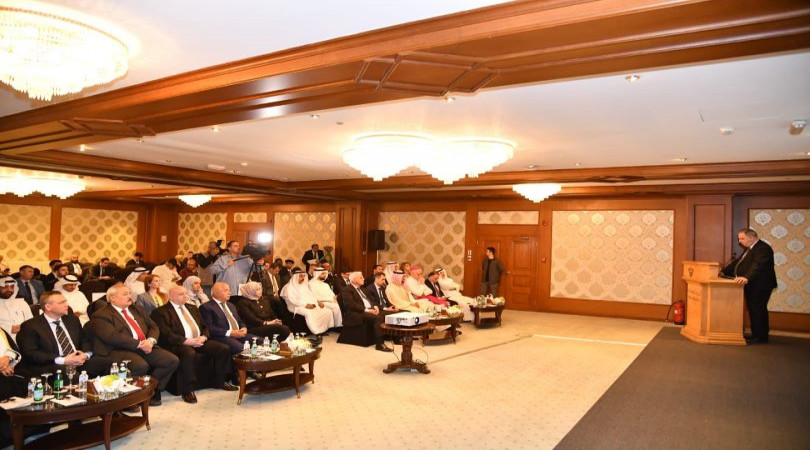Comments by Hikmat Hajiyev, MFA Spokesperson on the International Chernobyl Disaster Remembrance Day
On 8 December 2016 the United Nations General Assembly adopted the resolution A/RES/71/125, designating 26 April as International Chernobyl Disaster Remembrance Day. The 26 April 1986 Chernobyl nuclear disaster is one of the most terrible disasters in the history of mankind. Although more than 30 years have passed since the Chernobyl accident, its radioactive, humanitarian, environmental, social and economic consequences still persist.
More than 7000 people from Azerbaijan took part in the liquidation of the consequences of this disaster. At the time of the Chernobyl accident Azerbaijan temporarily sheltered more than 7,000 people who suffered in the accident and provided support, rehabilitation and treatment for them.
Currently, there are approximately 5,000 disabled persons from Chernobyl in Azerbaijan. During the past period, more than 2,000 disabled persons from Chernobyl have passed away. The worst part is that, in most cases, even the children of Chernobyl disabled persons suffer from the consequences of radioactive radiation.
The Government Republic of Azerbaijan always takes care of Chernobyl disabled persons and resolves their social problems, within the basis of its social policy.
On the occasion of International Chernobil Disaster Remembrance Day we express our solidarity with Belarus, Ukraine and Russia, the countries directly affected by this tragedy and would also like to draw the attention of the international community to the danger posed by the Metsomor nuclear power plant (NPP) located in the territory of Armenia, which was built in 1976, based on the technology used in Chernobyl nuclear power plant.
Metsamor NPP is the only NPP in the world that operates in the basis of the same technology that was used in the Chernobyl nuclear power plant. Since the construction of the power plant no serious or fundamental maintenance work was carried out. Metsamor NPP is located in the active seismic zone. Armenia lacks the financial and material resources to maintain and operate the NPP in accordance with the safety procedures and is not able to provide the required spare parts in a timely manner. Armenia lacks the human resources required to ensure the operation of the power plant by the necessary requirements and most of the professionals trained during the USSR period have migrated the country. Although there are new safety standards for NPP’s to take measures against aircraft collisions after the September 11incident, it creates a serious question if the Metsamor NPP meets these requirements. In addition, the physical protection of the plant is not organized properly. Metsamor NPP serves as a base for radioactive material smuggling and nuclear terrorism and repeatedly the radioactive materials from the plant have been detained in other countries. Using outdated technology and not following safety procedures during the operation of the NPP poses serious environmental problems to Armenia and the region and causes radioactive contamination of water basins and trans-regional rivers. Also the operation of the station is non-transparent and the public is not informed about the technical problems and accidents that occur in a sustainable manner.
"National Geographic" has rated the Metsamor nuclear power plant as the most dangerous among all existing NPP’s.
Armenia’s policy of continuing to operate the Metsamor NPP which has exhausted its moral and technical resources is just another example of Armenia’s irresponsible behavior towards the international community. Instead of making lessons learned from the consequences of the Chernobyl disaster Armenia puts the lives of millions of people throughout the Caspian, Black and Mediterranean basins face to face with the nuclear threat.
Bulgaria and Slovakia, with the support of the European Union suspended the activities of nuclear power plants which operated with the same technology. Even though the European Union and other institutions offered their support to Armenia for suspending the operation of the Metsamor NPP, Armenia has refused the help.
Armenia’s policy is a serious violation of the agreement of 30 September 1993 between the Republic of Armenia and the International Atomic Energy Agency(IAEA) for the application of safeguards in connection with the Treaty on the Non-Proliferation of Nuclear Weapons, Convention on the Physical Protection of Nuclear Material and its amendment, Convention on Nuclear Safety, International Convention for the Suppression of Acts of Nuclear Terrorism, IAEA’s “Code of Conduct on the Safety and Security of Radioactive Sources, and supplementary Guidance on the Import and Export of Radioactive Sources”, as well as the UN Security Councils 1373 and 1540 resolutions on developing, acquiring, manufacturing, possessing, transporting, transferring or using nuclear, chemical or biological weapons and their delivery systems, also the Convention on Environmental Impact Assessment in a Transboundary Context (UN Espoo Convention).
Taking the opportunity, we call upon the United Nations and its specialized agencies, including the IAEA and other relevant international institutions, countries of the region, civil society organizations specialized in environmental issues, international media, the sensible people from the Armenian society to redouble their efforts in suspending the operation of Metsamor NPP which puts the region face to face with a nuclear threat as in Chernobyl.
http://mfa.gov.az/en/news/909/4873

















